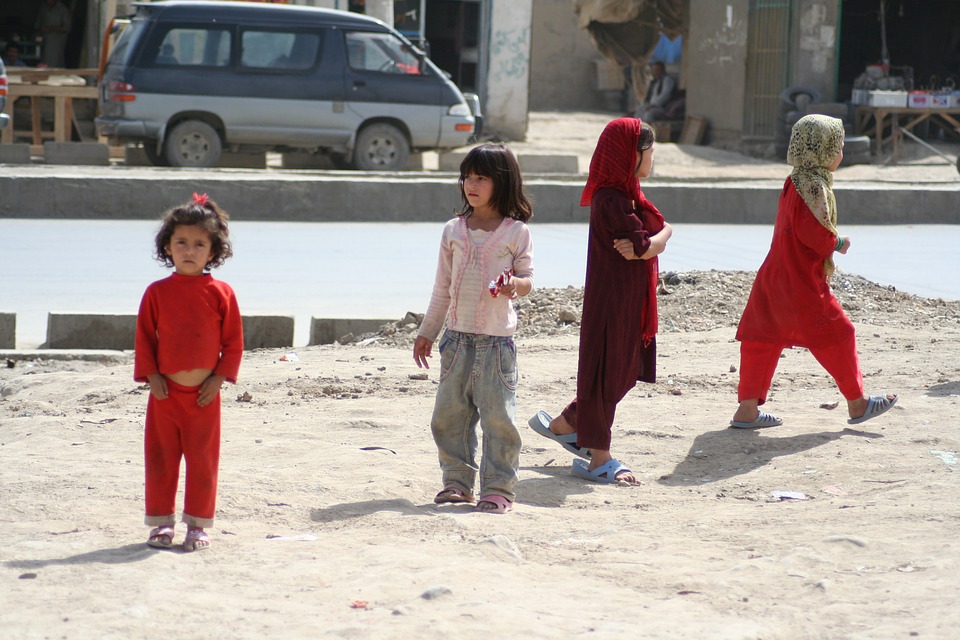By Isabelle Despicht / GICJ
On Monday, 17th of January, a group of independent UN human rights experts appointed by the Human Rights Council expressed serious concerns about the current situation for women in Afghanistan. The UN warned about the systematic gender-based discrimination and violence against women and young girls currently experience in the country. The conditions for Afghan women and girls, which were already dreadful before the Taliban offensive, have worsened since they took over Kabul in August 2021.
 Over the last couple of months, Taliban leaders have systematically used aggressive measures against women, such as preventing them from attending school, thereby denying their fundamental right to education. Additionally, women are prevented from returning to their jobs and using public transport without male supervision. The UN expert group sees these restrictions as a way to exclude women and girls from Afghan society's social, political, and economic spheres.
Over the last couple of months, Taliban leaders have systematically used aggressive measures against women, such as preventing them from attending school, thereby denying their fundamental right to education. Additionally, women are prevented from returning to their jobs and using public transport without male supervision. The UN expert group sees these restrictions as a way to exclude women and girls from Afghan society's social, political, and economic spheres.
Harmful practises can further be illustrated by the continuous denial of the rights of women to follow secondary or tertiary education, as Taliban groups contend that men and women must be separated. Female students have to follow a strict attire policy to attend school, which has forced secondary girls' schools, in particular, to stay closed. Today, most girls attending grades 7-12 are being refused access to schooling. [1]
The UN expert group further underlines that "taken together, these policies constitute a collective punishment of women and girls, grounded on gender-based bias and harmful practices". [2] The situation is considered particularly worrisome, given the closing of the Ministry of Women's Affairs, which was repurposed to serve Taliban propaganda and the shutting down of the Afghan Independent Human Rights Commission (AIHRC), whose personnel has been the subject of targeted attacks by the Taliban in 2020. Furthermore, specialized courts and prosecution units responsible for implementing the Law of Elimination of Violence Against Women of 2009 have been discarded.
The dismantlement of these institutions and the newly imposed rules have affected the ability of women to work and become financially autonomous as they are now made dependent on their male counterparts and prevented from attending secondary or tertiary education, only increasing their risk of further falling into poverty. The measures mentioned above have also heightened the possibility of women and girls to being (sexually) exploited, trafficked, compelled into marriage, or even forced into labour, which has led many of them to flee the country. Another consideration is that women and girls belonging to ethnic, religious or linguistic minorities, such as the Hazara, Tajik, Hindu and other communities, are even more susceptible to harm due to their potentially observable differences.
Other groups such as human rights defenders, judges and prosecutors, civil society activists, journalists or security and government forces also face an increased risk.
The UN expert group accentuates the need of the international community to hold the de facto authorities accountable for their actions and the urgent need to bring humanitarian assistance to those in need. The experts reiterate, that "any humanitarian response, recovery or development efforts in the country, are condemned to failure if female staff, women-led organizations, and women in general - particularly those from minority communities - continue to be excluded from full participation in the needs assessments as well as in the decision-making, design, implementation and monitoring of these interventions". [3]
Geneva International Centre for Justice (GICJ) highly condemns the systematic human rights violations against the Afghan people and the exclusion of women out of the political, cultural and economic spheres. GICJ calls on the international community to hold the de facto taliban government accountable for its actions and urges it to provide special humanitarian assistance to people who are under great risk, such as women and girls, those belonging to minorities, and other high-risk groups.
Justice, Human Rights, Geneva, geneva4justice, GICJ, Geneva International Centre For Justice
[2] https://www.ohchr.org/EN/NewsEvents/Pages/DisplayNews.aspx?NewsID=28029&LangID=E









